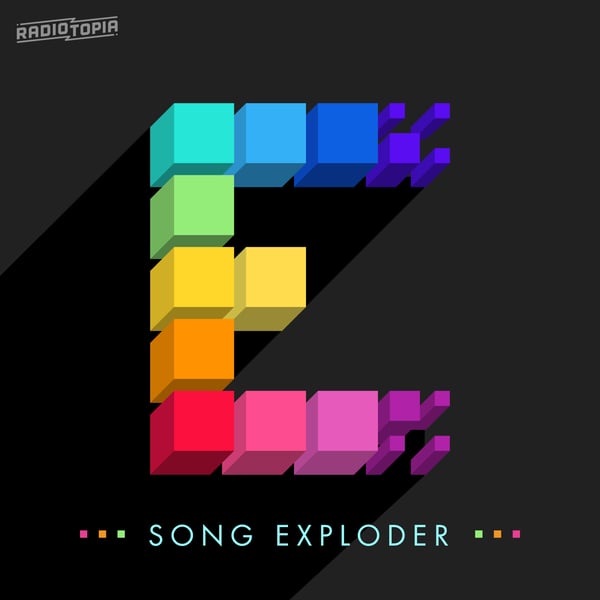The Thermals - No Culture Icons
Song Exploder
Hrishikesh Hirway
4.8 • 6.4K Ratings
🗓️ 18 September 2014
⏱️ 14 minutes
🧾️ Download transcript
Summary
The Thermals originally began as Hutch Harris's solo recording project. He sang and played all the instruments on the 2003 Thermals record More Parts Per Million. In this episode, Hutch breaks down his lo-fi recording of the song No Culture Icons. The track was later mixed by Chris Walla, who's known best for his work with Death Cab for Cutie, and we’ll hear some thoughts from him as well. I spoke with Hutch in front of a live audience at the XOXO Festival in Portland, Oregon.
Transcript
Click on a timestamp to play from that location
| 0:00.0 | You're listening to song exploder where musicians take apart their songs and piece by piece tell the story of how they were made. I'm Rishikesh, your way. |
| 0:10.5 | This episode contains explicit language. |
| 0:13.5 | Harnie Starving, hardly I hardly garbage, hardly I hardly starving, hardly I hardly garbage. |
| 0:28.5 | The band The Thurmels originally began as Huch Harris's solo recording project. |
| 0:32.5 | He sang and played all the instruments on the 2003 Thurmels record more parts per million. |
| 0:37.5 | In this episode, Huch breaks down his low-fi recording of the song, No Culture Icons. |
| 0:41.5 | The track was later mixed by Chris Walla, who's best known for his work with Death Cab for Cutie, and will hear some thoughts from him as well. |
| 0:47.5 | I spoke with Huch in front of a live audience at the XOXO Festival in Portland, Oregon. |
| 0:52.5 | This just started as a recording project that I was doing by myself on a 4 track just recorded at my old house. |
| 1:12.5 | So this was like the start of the whole band. There was nothing and then I recorded a bunch of songs on a 4 track and that became the band. |
| 1:20.5 | Maybe when I was 17 or 18 I got a 4 track and a lot of friends, this is before Pro Tools, so everyone I knew was recording songs on cassette. |
| 1:29.5 | Because it's cheap mainly and then it's easy, it's cheap and easy to use. |
| 1:34.5 | A cassette cost a dollar and I think I could fill like 3 or 4 songs on a cassette. |
| 1:38.5 | So really the record cost about like $12 to make. |
| 1:44.5 | If you can accept that the recordings are really low-fi, you know, to me it's like if you have a really good song, especially a good like punk song or a simple song, you don't need a really expensive recording. |
| 1:57.5 | And this is just something I had done a lot, just recording songs very quickly, you know, without a lot of thought and planning and not knowing what was going to happen. |
| 2:06.5 | It was just like the project I was doing. |
| 2:08.5 | The liner notes for the first elevator to Hell Record, he says that each song was just written and recorded in one day. |
| 2:16.5 | I loved the music that he made and I thought that was a really good way to approach a project. |
| 2:42.5 | That's a really good way to work. You write something, you record it and then you're just done with it at the end of the day, you don't overthink it, you don't overwork the song. |
| 2:51.5 | What I would do is, you know, come home from work, figure out something on guitar, I would do a click track and then put the guitar and then fill out all the other instruments and then go sit and just sit on the porch and write lyrics. |
| 3:03.5 | And then, you know, at the end of the day, you have a song finished, which it's a really satisfying and gratifying way to work, as long as you can deal with, you know, it's very low-fi, obviously. |
... |
Please login to see the full transcript.
Disclaimer: The podcast and artwork embedded on this page are from Hrishikesh Hirway, and are the property of its owner and not affiliated with or endorsed by Tapesearch.
Generated transcripts are the property of Hrishikesh Hirway and are distributed freely under the Fair Use doctrine. Transcripts generated by Tapesearch are not guaranteed to be accurate.
Copyright © Tapesearch 2025.

